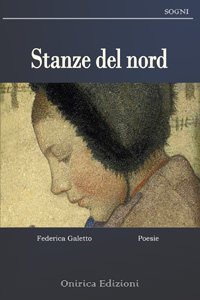
Season of mists and mellow fruitfulness,
Close bosom-friend of the maturing sun;
Conspiring with him how to load and bless
With fruit the vines that round the thatch-eaves run;
To bend with apples the moss’d cottage-trees,
And fill all fruit with ripeness to the core;
To swell the gourd, and plump the hazel shells
With a sweet kernel; to set budding more,
And still more, later flowers for the bees,
Until they think warm days will never cease;
For Summer has o’erbrimm’d their clammy cells.
Stagione di nebbie e di matura fecondità,
amica fidata del cuore del maturante sole;
che cospiri con lui per caricare e benedire
di frutti le viti che intorno alle grondaie corrono;
per piegare sotto le mele i muschiosi alberi della capanna,
e colmare tutti i frutti di maturità fino al torsolo,
per gonfiare la zucca, e arrotondare i gusci delle nocciuole
con un dolce nòcciolo; per dare vita ad altri
e ancora altri, più tardivi fiori per le api,
finché esse possano pensare che i giorni tiepidi non finiranno mai,
perché l' Estate ha colmato fino all’orlo le loro ricche celle
Who hath not seen thee oft amid thy store?
Sometimes whoever seeks abroad may find
Thee sitting careless on a granary floor,
Thy hair soft-lifted by the winnowing wind;
Or on a half-reap’d furrow sound asleep,
Drowsed with the fume of poppies, while thy hook
Spares the next swath and all its twinèd flowers:
And sometimes like a gleaner thou dost keep
Steady thy laden head across a brook;
Or by a cyder-press, with patient look,
Thou watchest the last oozings, hours by hours.
Chi non t’ ha veduto spesso fra la tua abbondanza?
Talvolta chiunque va fuori in cerca può trovar
te a sedere senza pensieri su d’ un’ aia,
i tuoi capelli mollemente sollevati dal soffio del vento;
o su un solco mietuto, mezzo addormentato,
assopito dai fumi dei papaveri, mentre il tuo falcetto
risparmia il prossimo mannello, e tutti i suoi fiori intrecciati
e talvolta come uno spigolatore tu tieni
fermo il tuo capo carico attraversando un ruscello;
o presso un torchio da sidro, con sguardo paziente,
tu osservi gli ultimi trasudamenti per ore ed ore.
Where are the songs of Spring? Ay, where are they?
Think not of them, thou hast thy music too,—
While barrèd clouds bloom the soft-dying day
And touch the stubble-plains with rosy hue;
Then in a wailful choir the small gnats mourn
Among the river-sallows, borne aloft
Or sinking as the light wind lives or dies;
And full-grown lambs loud bleat from hilly bourn;
Hedge-crickets sing; and now with treble soft
The redbreast whistles from a garden-croft;
And gathering swallows twitter in the skies.
Dove sono i canti della Primavera? Sì, dove sono?
Non pensare ad essi; tu possiedi la tua musica,
mentre nuvole a banchi fioriscono il giorno che lento muore,
e fanno i piani di stoppie di una rosea tinta;
allora in lamentoso coro i moscerini gemono
tra i salici del fiume, portati in alto
o affondano, come il lieve vento vive o muore;
e adulti agnelli belano a lungo di là della collina;
siepi di grilli cantano; ed ora con voce sommessa
il pettirosso canta dal recinto d’un giardino;
e le rondini si raccolgono trillando nei cieli.
John Keats
Traduzione di Federica Galetto ©








































Nessun commento:
Posta un commento